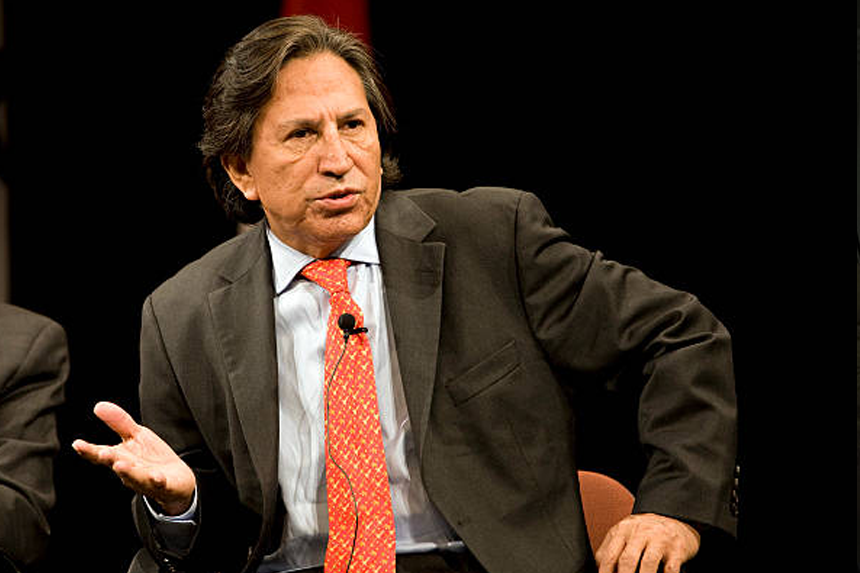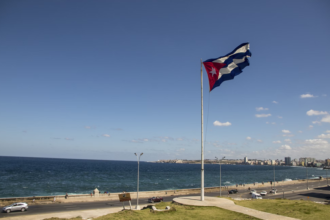Former President Faces Justice for Bribery and Money Laundering.
A Peruvian court has sentenced former President Alejandro Toledo to twenty years and six months for participating in a significant corruption scandal involving money laundering and bribes. The decision emphasizes the continuous difficulties with political corruption in Peru, especially the infamous Odebrecht scandal that has linked several previous Latin American leaders.
What Are the Details of the Case?
Prosecutors claim Toledo paid bribes of $35 million (£27 million) from Odebrecht, a Brazilian construction company hired to complete a roadway in southern Peru. The issue has been critical as the claimed corruption’s enormous scope affects public confidence in government institutions.
Musk vs Trump Power Clash: Billionaire vs Politician in a High-Stakes Feud
From 2001 until 2006, Toledo presided over Peru; throughout this time, he was supposed to maintain public financial integrity. Instead, the court concluded he betrayed the Peruvian people’s confidence in him. Judge Inés Rojas said, “You were responsible for managing public resources and defrauded the state.” Her remarks captured the weight of Toledo’s acts and the expectations of those in authority.
What Happened During the Extradition and Arrest?
Now 78 years old, Toledo spent some years living in California before his imprisonment. He was arrested and later sent to Peru five years ago under extradition. His extradition was a significant turning point in the nation’s continuous fight against corruption, as authorities aimed to hold individuals guilty for abusing their authority.
Admitting to paying bribes to land government contracts in many nations, including Peru, Odebrecht has been at the core of many corruption scandals in Latin America. This disclosure has spurred extensive research and tarnished public confidence in political leaders.
How Did Toledo Respond to the Allegations?
Toledo has regularly refuted the accusations made against him during the procedures. He claimed political motivation for the charges and maintained his innocence during the trial. Even if the charges were severe, Toledo seemed somewhat contemptuous during the judicial procedures. “I have always behaved in my nation’s best interest,” he remarked allegedly. During pivotal events in the courtroom, especially when the judge was speaking, observers remarked he often grinned and sometimes laughed.
Among those there, this attitude drew questions since it suggests a lack of regret or awareness of the seriousness of the matter. Toledo’s approach stood much apart from the grave consequences of the court ruling.
What Is the Broader Context of Corruption in Peru?
The lawsuit against Toledo fits a more extensive probe of political corruption in Peru that has caught several past leaders. Former president Alan García killed himself in 2019 after authorities showed up at his house to arrest him for allegedly engaging in comparable bribes involving Odebrecht. His sad death reminds us sharply of the significant stakes these corruption trials carry.
Furthermore, two other former presidents, Pedro Pablo Kuczynski and Ollanta Humala, are under investigation for their potential involvement in the Odebrecht affair. Toledo is not alone in undergoing examination. This continuous drama emphasizes the widespread corruption in Peruvian politics and the necessity of institutional changes to rebuild public confidence.
What Does Toledo's Sentencing Mean for Peru?
Toledo’s sentence in Peru’s fight against corruption marks a significant turning point, demonstrating a will to hold political figures responsible for their deeds. The case is crucial for the Peruvian legal system and its capacity to confront corruption at the highest levels of government as the nation works on the consequences of the Odebrecht scandal. As the country works to reconstruct and move forward from this terrible chapter in its past, public confidence in governmental institutions hangs precariously.
Toledo’s conviction makes it abundantly evident that those in charge must be held responsible and that the Peruvian people deserve leaders dedicated to the moral handling of public resources. As this case shows, Peru has to stay alert in its quest for justice since the fight against corruption is far from over.








